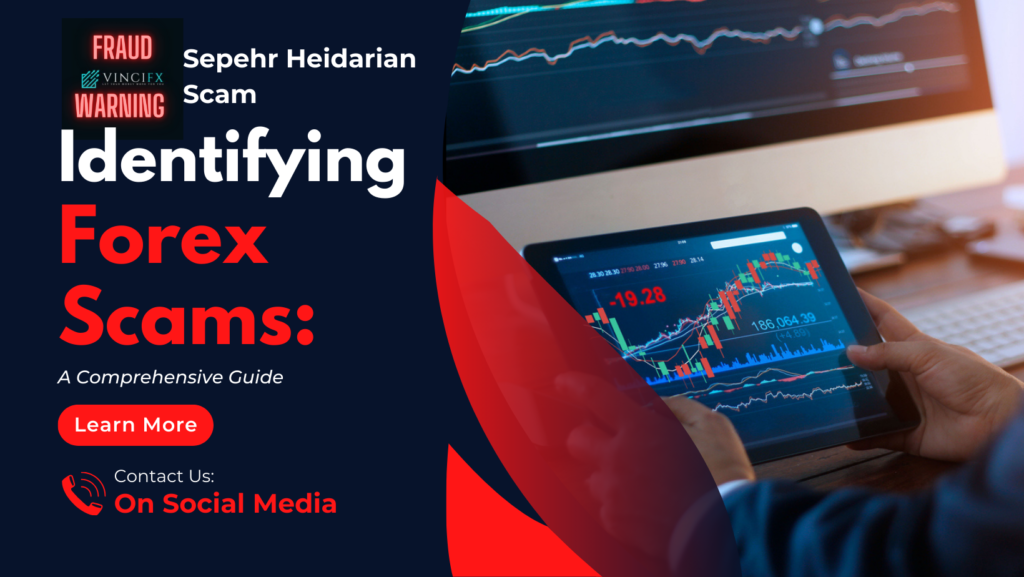Introduction:
In the vast and often bewildering landscape of the forex market, it’s essential to navigate with caution. This global financial behemoth encompasses currency options and futures contracts, operating as an unregulated, instant, over-the-counter spot market with minimal accountability. Within this dynamic environment, forex scams beckon with the promise of swift riches, making it imperative for traders and investors to be vigilant. For identifying forex scams, we’ve made it our mission to shed light on the deceitful practices employed by forex scammers.
In this comprehensive guide, we will delve into the fundamental principles, techniques, and strategies that empower individuals to become exceptional communicators. By exploring the intricate dynamics of communication, from verbal and nonverbal cues to active listening and empathy, you will gain valuable insights and practical tools to harness the power of communication to your advantage. Whether you’re a seasoned communicator looking to refine your skills or a novice seeking to build a strong foundation, this article will serve as your roadmap to becoming a master of effective communication. So, let’s embark on this enlightening journey to unlock the full potential of your interpersonal connections and achieve greater success in all aspects of your life.
Navigating the Forex Jungle: Spotting and Avoiding Scams
As of September 2023, the spot forex market boasted a staggering daily trading volume exceeding $6.6 trillion, encompassing currency options and futures contracts. This massive sum circulates through an unregulated, instant, over-the-counter spot market, devoid of accountability. In this environment, forex scams become alluring prospects for unscrupulous operators, promising quick riches. Although rigorous enforcement actions by the Commodity Futures Trading Commission (CFTC) and the establishment of the self-regulatory National Futures Association (NFA) in 1982 have curtailed many erstwhile scams, some old tricks persist, and new ones continually emerge.
As a whistle-blower website, we’ve witnessed first-hand the impact of these fraudulent schemes and their potential to harm unsuspecting individuals. Our commitment is to expose these treacherous tactics and empower the public with the knowledge needed to steer clear of forex scams.
A Glimpse into the Past: The Point-Spread Scam
One of the earlier scams was centered around point-spread manipulation. Here, bid-ask spreads, which essentially represent transaction commissions handled by brokers, were artificially altered through computer manipulations. These spreads typically vary between currency pairs, and the scam occurs when these spreads vary widely among brokers.
Notably, some brokers eschewed the conventional two-point to three-point spread in the EUR/USD and instead imposed spreads of seven pips or more. (A pip represents the smallest price increment in an exchange rate, usually the last decimal point.) When four or more additional pips were factored into each trade, the commissions levied by forex brokers could erode any potential profits from successful trades, depending on their fee structures.
Though this scam has abated over the past decade, caution remains warranted, especially with offshore retail brokers lacking regulation by the CFTC, NFA, or their respective home countries. These practices endure, and companies sometimes vanish when confronted with legal actions. Historically, most offenders have been U.S.-based firms, rather than offshore entities.
The Signal-Seller Scam
A contemporary scam gaining prominence is the signal seller. Signal sellers encompass retail firms, pooled asset managers, managed account companies, or individual traders who offer systems, often for a recurring fee, claiming to identify opportune moments to buy or sell currency pairs based on expert recommendations. These recommendations promise financial prosperity, backed by testimonials extolling the wealth generated.
However, many signal-seller scams are essentially schemes to collect funds from unsuspecting traders, with some providing occasional profitable signals to maintain appearances. Although honest signal sellers exist, skepticism is wise.
“Robot” Scams in Today’s Market
In the modern era, a persistent scam involves forex-developed trading systems often referred to as “robots.” These scammers tout automated systems that generate wealth even as you sleep. These systems, fully computerized, are promoted under the term “robot.” Regrettably, many such systems lack formal reviews or independent testing.
A thorough evaluation of a forex robot entails examining its trading system parameters and optimization codes. Invalid parameters and optimization codes result in random buy and sell signals, effectively reducing trading to a form of gambling. While tested systems are available, prospective forex traders should research before entrusting their funds to these approaches.
Additional Considerations
Historically, trading systems have incurred hefty costs, sometimes exceeding $5,000. Such pricing itself can be viewed as a scam. In today’s landscape, no trader should pay more than a few hundred dollars for a legitimate system. Beware of sellers who demand exorbitant prices, accompanied by unrealistic promises of astounding results. Seek out sellers whose systems have undergone rigorous testing for potentially viable results.
Another perennial issue is the commingling of funds. Without separate accounts, investors can’t accurately track their investments, making it easier for retail firms to misuse funds. The Commodity Futures Modernization Act of 2000 addressed fund segregation under Section 4D. However, challenges in other nations persist.
In selecting a broker or trading system, skepticism is crucial when confronted with promises or promotional material guaranteeing extraordinary performance. Be vigilant about brokers who restrict fund withdrawals or platform issues that impede trade execution during market volatility.
In Conclusion
Prospective forex traders should exercise due diligence in researching brokers. Visit the Background Affiliation Status Information Center (BASIC) established by the NFA to gather information about brokers. While many improvements have been made to eliminate dishonest practices and older scams, the allure of substantial profits will continue to attract new, more sophisticated scammers to the forex market. Remain vigilant, and always prioritize thorough research before investing in any forex venture.

Pingback: Recovery Scams Decoding: A Guide to Spotting Fraud - Sepehr Heidarian